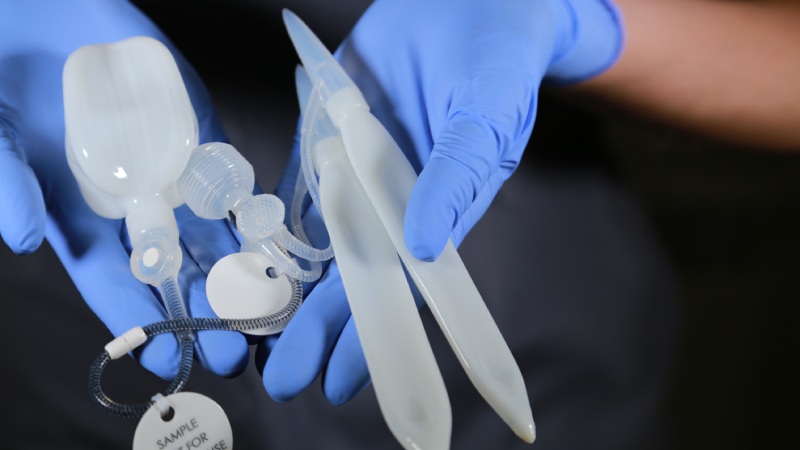25 January, 2023
The penile prosthesis, a solution when the rest of the treatments for erectile dysfunction fail

Erectile dysfunction is the inability to get and keep an erection firm enough for sexual intercourse. It is a problem that can affect between 20 and 50% of the adult population, affecting one in two men over the age of fifty. Despite being such a common disorder, it is still rare to talk about erectile dysfunction, on which an important social taboo still weighs. In this way, many men do not go to medical consultations to treat this problem, for which there are different types of treatment, the penile prosthesis being the last one when more conservative options have failed. It consists of placing a device inside the penis to try to optimise its rigidity when having sexual intercourse.
“We do penile prosthesis very frequently, it’s a very common solution”, explains Dr Josep Torremadé, head of the Andrology unit at the Clínic de Barcelona and a barnaclínic+ professional, who has participated in the ‘Tot es mou’ from TV3 to explain how to prevent and solve erectile dysfunction.
“We do penile prosthesis very frequently, it’s a very common solution for erectile dysfunction. Some people see it as a very orthopaedic solution, very artificial, but it really is a very natural solution”
Dr Josep Torremadé – Andrologist
The penile prosthesis implant is much more frequent than is believed, Clínic Barcelona is one of the hospital centres that perform this intervention the most. In 2022, 58 interventions were performed at the Clínic to place this type of penile prosthesis. “Some people see it as a very orthopaedic, very artificial solution, but it really is a very natural solution”, explains Dr Torremadé. The intervention is an outpatient surgery and the same day the patient returns home. The implant is placed through an incision in the scrotum that leaves almost no scar.
The postoperative period is usually short and after four or six weeks, sexual relations can be resumed. It is a hydraulic system that mobilises liquid from a reservoir located inside the abdomen to the penis. And with a pump located inside the testicles, the patient mobilises the liquid, achieving a rigid penis at the desired moment. In addition, sensation, touch and orgasm are not affected after the prosthesis is placed.
AN INCREASINGLY FREQUENT PROBLEM
When it comes to talking about erectile dysfunction, there are two large groups. On the one hand, there is psychogenic dysfunction, which tends to affect young people more. In this type of dysfunction, there is a stressor element that anticipates the problem and makes it difficult to achieve and maintain an erection. It is a type of dysfunction that is normally addressed by sexologists. The other type of dysfunction is organic.
In this second type, there are a variety of causes, from ageing to conditions such as obesity or cardiovascular problems and even as a consequence of oncological surgery. “We see this type of dysfunction more and more in our consultations. On the one hand, due to the ageing of the population, but also due to unhealthy daily habits that are more frequent, such as obesity”, added Dr Torremadé.
ESCALATION OF TREATMENTS
There are effective, safe drugs that allow erection normalisation and that work in around 80% of patients with erectile dysfunction. These drugs, called IPDE-5, improve the dilation of the penile artery and the blood flow that comes when there is sexual desire. Dr Torremadé explains that with the drug “the patient’s response will be of better quality, but a spontaneous erection will not be generated. You will need a stimulus and will enhance this patient’s erection”.
When drug treatment does not respond, there is second-line treatment. They are alternatives to improve blood flow to the penis and, thus, increase its rigidity. Finally, if these treatments do not work either, you can resort to a penile prosthesis. Dr Torremadé believes that “the penile prosthesis has to be an option when the rest of the treatments fail.”
“The penile prosthesis has to be an option when the rest of the treatments fail”
Dr Josep Torremadé – Andrologist


